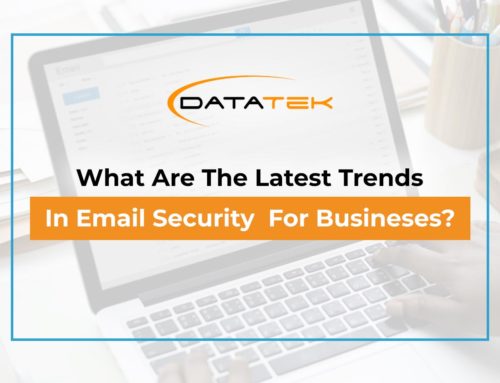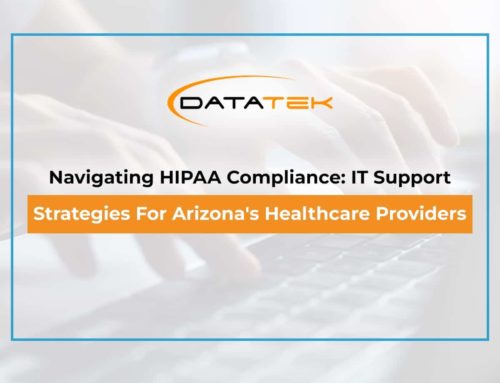Introduction To Cybersecurity In Accounting: Why It Matters
In today’s digital age, cybersecurity is paramount for accounting firms to protect sensitive client data from cyber threats. As technology advances, so do the methods malicious actors use to breach security systems. Therefore, implementing robust cybersecurity measures is not just a recommendation but a necessity for accounting firms to maintain trust, comply with regulations, and safeguard their reputation.
This article delves into the essential strategies and practices that accounting firms must adopt to ensure the security of client data.

Exploring The Cyber Threat Landscape For Accounting Professionals
Accounting firms face a myriad of cyber threats, including phishing attacks, ransomware, data breaches, and insider threats. These threats can result in financial losses, reputational damage, and legal consequences. Understanding the evolving threat landscape is crucial for developing effective cybersecurity strategies.
The Risk Of Social Engineering: Understanding Human-Focused Cyber Attacks
Social engineering refers to deceptive practices employed by malicious entities to acquire sensitive information or gain unauthorized access to systems. While hacking is commonly associated with technology, social engineering can occur person-to-person, making it a versatile and potent threat.
For instance, attackers may masquerade as trustworthy entities like banks or government agencies, soliciting personal data such as login credentials or financial information. This broad category encompasses various subversive tactics, making social engineering an umbrella term for nuanced threats discussed below.
As an accounting professional, vigilance against these tactics is crucial. Exercise caution when sharing information or granting system access, especially when uncertain about the requester’s identity. It’s imperative to recognize and promptly report any suspicious activities or requests.
Combatting Business Email Compromise & Ransomware In Accounting
Business Email Compromise (BEC) is a sophisticated cyber threat encompassing attacks directed at businesses, organizations, and individuals engaged in financial transactions via email.
During a BEC attack, malicious actors assume the identity of trusted entities like CEOs or vendors, employing deceptive emails to coerce recipients into transferring funds or divulging sensitive data.
The ramifications of a BEC breach are severe, particularly if hackers compromise your email and subsequently contact your clients under pretenses. They employ various strategies, such as social engineering and phishing, to infiltrate email accounts and manipulate correspondence. This manipulation may involve spoofing email addresses to masquerade as legitimate sources, adding to the deception.
Given your access to confidential financial data and responsibility for fund transfers on behalf of clients, you are susceptible to BEC threats.
In a typical scenario involving an accountant or bookkeeper, cybercriminals may request clients to divulge sensitive information or transfer funds to fraudulent accounts.
Another prevalent threat is ransomware, malicious software that encrypts files, rendering them inaccessible until a ransom is paid for decryption.
Ransomware attacks can infiltrate systems via email, social media, or compromised websites, resulting in substantial financial losses and reputational harm to individuals and organizations.
Attackers targeting accountants and bookkeepers often employ social engineering tactics, such as deceptive emails posing as legitimate entities (e.g., clients or vendors) with attachments or links that, when accessed, install ransomware on your devices.
Alternatively, phishing emails may be used to extract login credentials, granting attackers unauthorized access to systems for deploying ransomware.
Phishing Attacks: Recognizing & Preventing Potential Threats
Phishing, a subset of social engineering, involves duplicitous schemes aimed at extracting sensitive information from individuals. Unlike social engineering, phishing exclusively operates through technological means.
Scammers deploy fake emails or messages, mimicking reputable organizations, to deceive recipients into divulging personal data. Given the deceptive nature of these communications, it’s essential to exercise caution while sharing personal information online and verify the legitimacy of the sender’s information.
As an accounting professional, you frequently receive communications from financial institutions and business partners. These messages can be easily replicated by malicious actors, highlighting the importance of refraining from clicking on suspicious links or providing sensitive information. To validate authenticity, directly contact institutions via verified phone numbers or alternate email addresses.
Cybersecurity Best Practices For Accounting Firms
Understanding the diverse cyber threats is foundational, yet taking specific actions tailored to your processes is imperative for risk mitigation. Cybersecurity strategies within firms typically focus on three core areas:
Access & Identity Management
Implementing technology solutions that bolster security across digital processes is paramount. Access and identity management encompasses processes and technologies facilitating controlled access to organizational resources.
For accountants and bookkeepers, this entails managing user accounts, permissions, and roles, alongside enforcing robust security policies. Key features of an effective access and identity management tool include:
- Managed multi-factor authentication
- Advanced user and team permissions
- IP, time, and location-based access controls
- Password encryption and cloaking
- One-click user lockout
- Remote and third-party access controls
Employee Education & Training
Human error remains a significant cybersecurity vulnerability. Investing in comprehensive education and training programs for employees is essential.
These programs raise awareness about cybersecurity’s importance and equip employees to identify and respond to common threats like phishing. Mitigating specific threats, such as ransomware or social engineering attacks, through targeted training enhances overall cyber resilience.
Compliance Documentation
Compliance with legal and regulatory standards is integral to holistic cybersecurity. Understanding and adhering to legislated requirements, such as IRS 4557 in the US, ensures legal compliance.
Internal policies like internet and data usage guidelines and third-party access agreements further reinforce cybersecurity protocols, safeguarding data and operations.
In conclusion, prioritizing cybersecurity through robust strategies tailored to your firm’s operations is fundamental in mitigating risks and safeguarding sensitive information.
Safeguarding Your Business: The Vital Role of Cybersecurity in 2024
As we progress through 2024, the importance of cybersecurity becomes increasingly critical for both businesses and individuals. Failing to implement robust cybersecurity measures exposes organizations to the dangers of data breaches and malicious infiltrations.
For accounting and bookkeeping firms deeply engaged in daily interactions involving sensitive client data, cybersecurity transcends being merely important—it becomes indispensable. Without a strong cybersecurity framework in place, these enterprises face imminent risks of data theft and unauthorized system breaches. These breaches can lead to significant financial losses, damage to reputation, and potential regulatory penalties.
Datatek offers comprehensive IT support services, ensuring seamless fulfillment of all your technological requirements. Our flat fee support agreement, preferred by a majority of clients, guarantees budget-friendly and hassle-free technology solutions devoid of unpredictable IT expenses.
From server monitoring to desktop support and strategic consulting, Datatek is dedicated to effectively addressing all your technology challenges. Contact us today to leverage our expertise and tailored solutions for enhanced cybersecurity and operational efficiency.







